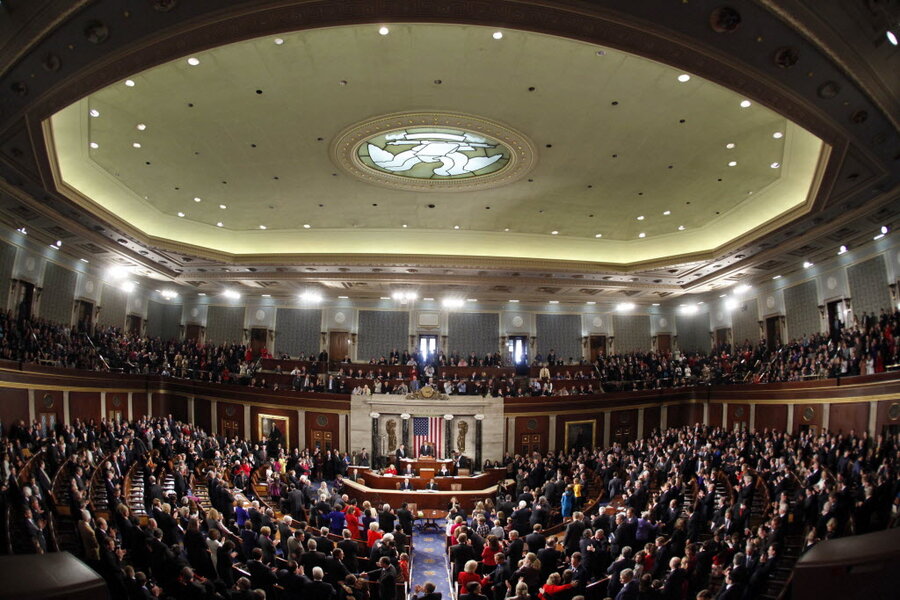Some argue that the Congress of today is not all that different – in its political temperature and its general fractiousness – than the Congresses of yore.
The Congresses of the past 40 years may have been the aberration, a time when America's political parties were less ideologically cohesive and were divided more by region, says University of Maryland's Karol.
The Republican Party and the Democratic Party over those decades “were very abnormal if you compare [them] to other democratic, stable countries, and even in our history, where we had much more polarized parties in the 19th century,” he says.
So what’s the big deal about today?
Members of Congress have long put their own political needs ahead of the body’s institutional effectiveness, argues Mr. Wolfsenberger of the Congress Project. Likewise, politicians have long found it “easy and convenient to run for Congress by running against it. And they continue to get away with it at the polls,” Wolfsenberger wrote in an April paper.
How long can this hold up? “To that extent, at least,” Wolfsenberger writes, “the culture hasn’t changed all that much since Members first started running for Congress at the beginning of the Republic.”
Zelizer broadly agrees that the 112th Congress is largely in line with historical precedent, but he wonders whether it is bumping up against an unfamiliar question: Is Capitol Hill so polarized, so consumed with fundraising, hounded by interest groups, and lacking institutional knowledge that getting back to normal, from a historical perspective, would be a bad, bad thing?
Will “routine decisions become impossible?” he asks. “Is that the danger zone we’re now entering?
“I see no reason why the last two years don’t get repeated the next two years,” Downey says.





